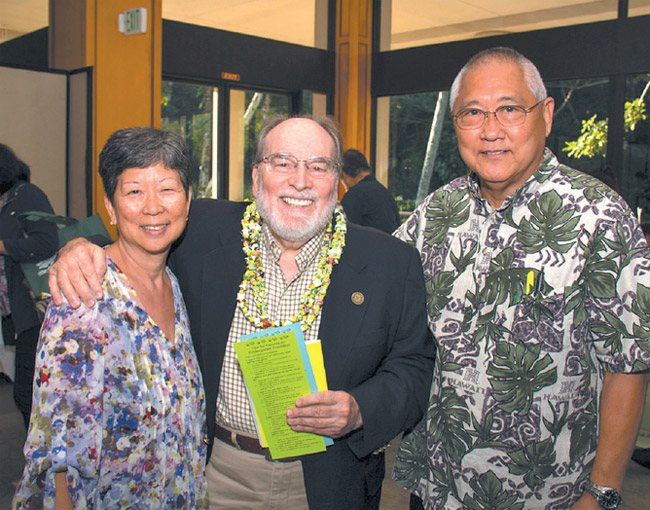Phyllis Ida: Nurturing Young Minds Via Grants, Laws, Lessons
By PAIGE TAKEYA
Not everyone knows that preschool is among the most important years in a child’s life. That’s a fact that Phyllis Ida, Windward P-3 grant coordinator, is hoping to change.
“Research has shown that if we work on early learning, it would improve test scores,” Ida said. “What we’re trying to do is get kids early, so that by the end of third grade, they will be at grade level … If they don’t catch up by the end of third grade, they usually don’t catch up.”
A retired DOE teacher who worked at Kaneohe, Hauula and Blanche Pope elementary schools, Ida was instrumental in obtaining and overseeing a four-year, $1.1 million grant from W.K. Kellogg Foundation, Kamehameha Schools and both the Harold K.L. and Samuel N. and Mary Castle foundations, as part of a statewide push for a seamless early-education experience from the prenatal stage to grade 3 (P-3). Ida oversees the grant’s execution in the Windward District’s four complexes.
While most of her work goes on behind the scenes – building connections among the DOE, private preschools, families and other community groups – Windward parents may have attended one of the numerous workshops, resource fairs and other activities put on by Kamalapua o Koolau. (Another workshop is planned for March 18 and 19 at the district office in King Intermediate School. Call Ida at 233-5727 ext. 247 for details.)
Ida helped form the group to facilitate the grant work – a veritable who’s who in Hawaii’s early-childhood education field.
“It’s not just me, it’s the team I have with me, that’s working with me. … I wouldn’t be able to do this by myself,” she declared. “It’s that wonderful team.”
Ida sees her work as helping clear barriers to early-childhood learning, such as the lack of universal preschool standards. Take Senate Bill 1084, for example, with its major implications for children. It called for a vote to amend the state constitution, and if it passes, it will let private preschools get state funding – an important first step in ensuring provider consistency.
Parents can send their children to any childcare center, she explained, but it doesn’t guarantee they’ll be prepared for kindergarten. So unless the constitution is changed, she said, “There will be state monies to provide some support – but it may not be quality support.”
Universal standards always are on Ida’s mind. “We’re trying to get private preschools and the DOE to collaborate, because if we want a universal system, we’re talking about 17,000 kids. DOE cannot do this by itself, and private preschools cannot do this by themselves.”
Communication is key, she believes. “That’s the hardest thing, because everybody’s in their own silos doing their own thing. They don’t have time to reach out.
“If we all work together, we can get the kids to where we need them to be – reading at grade level by the end of third grade.”
While Ida’s grant ends this academic year, the Ida team is trying to secure its legacy. “We’re looking for more funding, and what we’d like to do is help others statewide.”






